|
Eric Jack Pickles (born 20 April 1952) is a British
Conservative Party politician. Pickles was appointed Secretary of State for Communities and Local Government of the coalition government headed by Prime Minister
David Cameron on 12 May 2010.
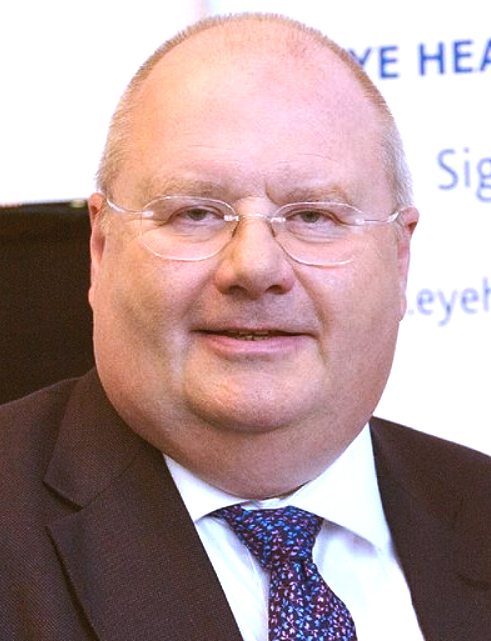
He was the Chairman of the Conservative Party until being replaced by Baroness Warsi in May 2010 and has been Member of Parliament for Brentwood and Ongar in Essex since 1992. He was Co-Chairman of the Joint Committee Against Racism between 1982 and 1987.
Born in Keighley, Yorkshire, he went to Greenhead Grammar School (which became Greenhead High School and is now University Academy Keighley) on Greenhead Road in Utley, north Keighley, then attended Leeds Polytechnic. He was born into a Labour supporting family – his great grandfather was one of the founders of the Independent Labour Party, and described himself as "massively inclined" towards communism as a
boy – but he joined the Conservative Party in 1968 after the Soviet Union invaded
Czechoslovakia.
Pickles soon became the chairman of the local Young Conservatives association and later became chairman of the national
organisation.
Bradford councillor
Pickles was first elected to Bradford Council in 1979. Between 1988 and 1990, he served as leader of the Conservative group on the council. In September 1988 the Conservative Party gained control by using the Conservative mayor's casting vote to become the only inner-city council to be controlled by the Conservatives.
When Bradford Council was hung, Pickles opted to break the agreement that the position of Lord Mayor is rotated between the parties, when he put a Conservative mayor in place
again. This effectively gave the Conservatives a majority due to the Lord Mayor's casting vote. To do this, they also broke the tradition that the Lord Mayor kept the status quo.
Whilst at Bradford, Pickles announced a five-year plan to cut the council's budget by £50m, reduce the workforce by a third, privatise services and undertake council departmental restructures, many of which proved
controversial. A book, The Pickles Papers by Tony Grogan, was written about this period in Pickles's
life.
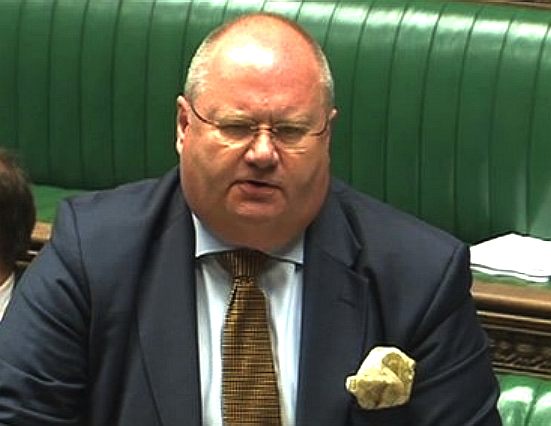
Parliamentary career
Pickles has been Member of Parliament for Brentwood and Ongar since 1992. He is currently the Secretary of State for Communities and Local Government in the coalition government headed by Prime Minister David Cameron, following his appointment to the role on 12 May 2010. Previously he has served as Chairman of the Conservative Party from January 2009 to May 2010 and Shadow Secretary of State for Communities and Local Government, having held that post since June 2007. Prior to this he served as Shadow Minister for Local Government from June 2002. Before that Pickles was Shadow Minister for Transport (September 2001 – June 2002) and Shadow Minister for London.
At the 2001 general election, the independent candidate Martin Bell, who had previously won Tatton from Neil Hamilton, stood against him due to accusations that the Peniel Pentecostal Church had infiltrated the local Conservative branch. Pickles's majority was severely reduced, but he retained his seat by a margin of 2,821 votes (6.5%) becoming elected with only 38% of the votes against Martin Bell's 31.5%.
At the 2005 general election Pickles retained the seat with an increased majority of 11,612 (26.3%), nearly as many as the total votes cast for the second place candidate, and making this the second safest seat in Eastern England, and Pickles the MP with the third-highest share of the vote cast[5] in this region. Pickles polled a total of 23,609 votes (53.5%).
On 2 July 2007 David Cameron appointed Pickles to a reshuffled Shadow Cabinet as Shadow Communities and Local Government Secretary. On 30 December 2008, according to reports in The Times, Pickles unveiled plans to "purge town hall 'fat cats'". The Times reported that under the plans "dozens of council chiefs who earn more than Cabinet ministers would lose their jobs as clusters of councils merged their frontline services and backroom operations to provide better value for money."[6] Of the eight highest earning chief executives listed in The Times' report, six are employed by councils run by the Conservative party, one by Labour and one by the Liberal Democrats.
Pickles was the campaign manager for the successful Crewe and Nantwich by-election in May 2008. Following this, Pickles was promoted to Chairman of the Conservative Party in January 2009.
In early 2010, Pickles defended the first-past-the-post voting system as resulting in stable government. He attacked Prime Minister Gordon Brown saying he "... now wants to fiddle the electoral system" by wanting to look at a Preferential Voting system with a single transferrable vote, similar to that used in Australia and other countries.
Secretary of State for Communities and Local Government
Pickles was appointed as Secretary of State for Communities and Local Government as part of David Cameron's new coalition Government on 12 May
2010, and sworn as a Privy Counsellor on 13 May 2010.
Rt Hon Eric Pickles MP delivers the keynote address at the Flag Institute Spring Meeting 2011 in Mayfair
In his role as Secretary of State for Communities and Local Government, on 30 July 2010, Pickles announced plans to hand powers where ministers can cap unreasonable increases in council taxes to local people. A consultation begun in August 2010 and the powers, which will require legislation, should be in force by March 2012. Pickles said he was determined to reverse the presumption that Whitehall knows best by making local councils directly accountable to the local taxpayer. He said: "If councils want to increase council tax further, they will have to prove the case to the electorate. Let the people decide". Residents would be asked to choose between accepting the rise or rejecting it and instead accepting a below inflation rise, but with reduced council services. The average council tax on a Band D property increased from £688 a year in 1997/98 to £1,439 for
2010.
In late 2010, Sir Alan Sugar criticised Pickles; referring to him as "another pointless politician doing yet another menial administrative job that could be done by anyone that has been educated in any vague sort of half coherent
English".
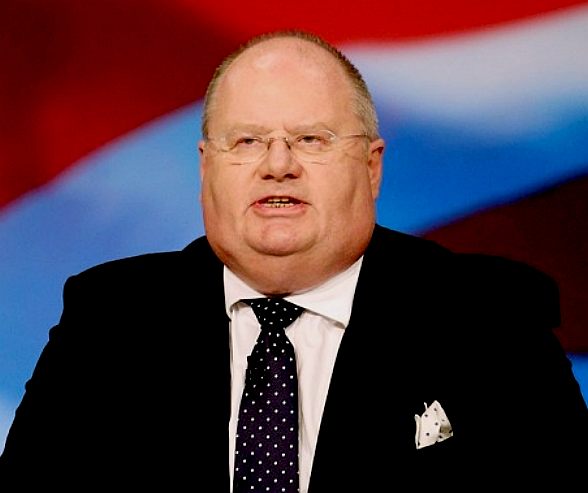
Localism Act
Pickles was responsible for the Localism Act 2011 that changed the powers of local government in England. The measures affected by the Act include more elected mayors and referendums. The Localism Act opens with Part 1, Chapter 1(1), under the heading "Local authority’s general power of competence", "A local authority has power to do anything that individuals generally may
do".
The bill was introduced by Pickles, and given its first reading on 13 December 2010. The Bill completed the third reading in the
House of Lords on 31 October 2011. The bill received Royal Assent on 15 November 2011.
The bill was quickly undermined however, published on 13 December, one of the claims made for it is that it would “give local communities real control over housing and planning decisions”. On the same day, Mr Pickles issued a decision in a planning appeal. National Grid had applied to Tewkesbury Borough Council to build a gas plant just outside Tirley in Gloucestershire. The installation would occupy more than 16 acres and was unlikely to be beautiful. The application had been opposed by more than 1,000 residents (and this in a sparsely populated rural area); by 12 parish councils and, indeed, by every single member of the planning committee of the local planning authority. Mr Pickles chose to grant permission to build the gas
plant.
Council prayers
On 10 February 2012, the National Secular Society obtained a High Court judicial review of the Christian prayers held during meetings in council chambers, that non-Christian councillors were forced to attend as prayers formed part of the formal agenda. Councillors are obliged to attend for the duration of the formal agenda. Mr Justice Ouseley ruled: "The saying of prayers as part of the formal meeting of a Council is not lawful under s111 of the Local Government Act 1972, and there is no statutory power permitting the practice to continue. I do not think the 1972 Act should be interpreted as permitting the religious views of one group of councillors, however sincere or large in number, to exclude, or even to a modest extent, to impose burdens on or even to mark out those who do not share their views and do not wish to participate in their expression of them. They are all equally elected
councillors".
Although Mr Justice Ouseley said prayers were permitted to be held before the start of the formal agenda, Eric Pickles vowed to reverse the High Court decision, despite a recent Yougov poll showing 55% were against councils holding prayers with just 26% in
favour. Eric Pickles brought forward his Localism Act, due to become law in April 2012, and made it law on 17 February 2012 claiming he is 'effectively reversing' the High Court
decision.
Keith Porteous Wood, Executive Director of the National Secular Society, commented "A number of senior lawyers have expressed doubt whether the Localism Act will, as Mr Pickles hopes, make prayers lawful, and the Act was clearly not passed with that express intention. His powers to pass legislation are not, as he implies, untrammelled. Council prayers increasingly look set to become a battle between the Government and the courts at ever higher
levels".
The Localism Act permits local government councils to do anything that is not forbidden. Mr Justice Ouseley's ruling forbid prayers to be said as part of the formal agenda in council meetings. To do so would be contrary to common law and so the Localism Act is powerless to overturn the ruling. Eric Pickles has written to all local government councils encouraging them to flout the law and continue with prayers in council
meetings, contrary to the Serious Crime Act 2007 forbidding encouraging or assisting a crime in English law.
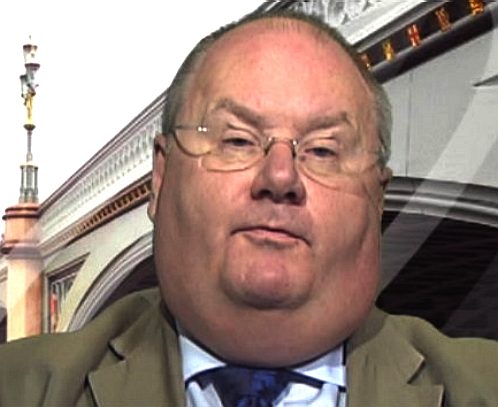
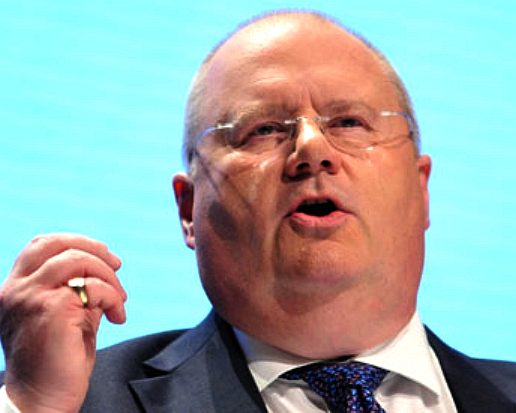
REPRESENTATION
OF THE PEOPLE?
FAO
Rt Hon Eric Pickles
MP
Fax Ref:
Secretary
of State
Department
for Communities and Local Government
Eland House, Bressenden Place
London,
SW1E 5DU
10 July 2012
Dear
Mr Pickles,
Re:
Council’s that deceive Planning Inspectors
Impropriety
in the Planning System & historic monuments
During
1986 my local authority, Wealden
District Council (WDC), issued an enforcement notice, which I appealed
to the Secretary of State and was decided by an Inspector Danreuther in
1987.
Unfortunately,
during that deemed planning application, WDC lied to your Inspector as to
the origins of a building now recognised by English Heritage as being one
of the few original surviving structures from 1909 that generated
electricity commercially.
The
persuasiveness of WDC officers was such that Inspector Danreuther declared
the building in question not to be the original generating works, but a
later building, built on the same site. Inspector Danreuther went on to
say that the historical significance that I claimed was therefore not a
reason to dismiss the enforcement notice. The decision Inspector
Danreuther reached must though be ultra vires according to R v Canterbury
City Council 1991, later reaffirmed in the Old Smiths Brewery case in
1998.
WDC
went on to compound this deception in a later application and appeal to
Inspector Michaels in 1997. They failed to follow the guidance in PPG16 as
to referring the claimed historical significance to the County
Archaeologist and then English Heritage.
Unfortunately, at the time as a layperson I was unfamiliar with these
requirements.
In
planning law it is not possible to challenge the validity of an
enforcement notice in the High Court on anything but a point of law. Thus
it must be that planning legislation is incompatible with our Human Rights
Act 1998, where section 4 provides for a declaration of incompatibility,
once such incompatibility has been identified.
In
2000 after the involvement of the Sussex Industrial Archaeology Society,
East Sussex County Council concerned as to the failings of WDC
commissioned an independent survey of the site, which proved along with
several historic documents and local eyewitness testimony, that the
building in question is original.
Subsequently,
after consideration of the ‘survey’, English Heritage placed the
building on a Monument Protection
Programme.
Later
still in 2003/4 WDC entered into an agreement not to use their defective
enforcement notice and to jointly apply for planning permission, which I
agreed to provided that they expedited the matter speedily. Unfortunately
WDC did not and have since breached this agreement. For this reason, I
could never again trust anything this council say and they are now saying
that their defective enforcement notice is valid – preventing me from
peacefully enjoying use of the buildings.
Since
it is your Inspectors that were deceived by this council into making
decisions on incorrect information, and since there was/is no remedy
provided in planning law, I would like to propose that we might jointly
seek declarations from the High Court as to:-
1.
That English planning
law does (or did) not provide any mechanism to correct the decisions based
on incorrect facts.
2.
That the Secretary of State was provided with incorrect information
by WDC during the above mentioned appeals.
3.
That the correct procedure as outlined in PPG 16 as to referral to
English Heritage, etc, was not followed by WDC.
4.
That the enforcement notice upheld in 1987 on incorrect facts is
ultra vires and should be quashed.
It
appears to me that such declarations could provide the effective remedy
that I am seeking. Effective, in that is should be recognised that the
problem stems from the 1986 enforcement notice and the failure of this
council to properly address the historic attributes of this important
monument to the early electricity generating industry.
Could
I ask you to please agree to look at this matter with a view to agreeing a
form of remedy that exonerates the Secretary of State of blame, where it
was WDC’s (I think) deliberate intention to deceive your Inspectors to
cause me as much suffering in human rights terms as they could.
I
can provide you with copies of the relevant decisions and transcripts of
the decision making committees at WDC, etc.
I
look forward to hearing from you at your earliest convenience.
Your
humble servant,
_________________
(informant)
To
date Mr Pickles has not replied to this letter. Perhaps that is because
everything in it is 100% accurate? Otherwise, a minister for the Crown
would surely reply. But, even if the above is true, surely any member of
parliament who realises that his country is getting it wrong, surely such
a member of parliament would want to stand up and be counted for what is
right? We await reply from Mr Pickles with great interest. It is a basic
Human Right to think (Article 9) and to speak (Article 10) freely without
fear of recrimination. That is what representation is all about.
House
of Commons question backfires Youtube
LINKS
and REFERENCE
Party
funding
The
Conservative party
31.03.2006:
Tories
name some lenders, and pay back others
31.03.2006: Statement
on Conservative party funding
31.03.2006: Cameron
is forced to reveal names behind £24m loans
30.03.2006: Tories
warned: come clean on loans or face court action
29.03.2006: Detectives
to probe Tory loans as honours inquiry widens
The
Guardian
This
site is protected under Article10
of the European Convention on Human
Rights and Fundamental Freedoms.
|




